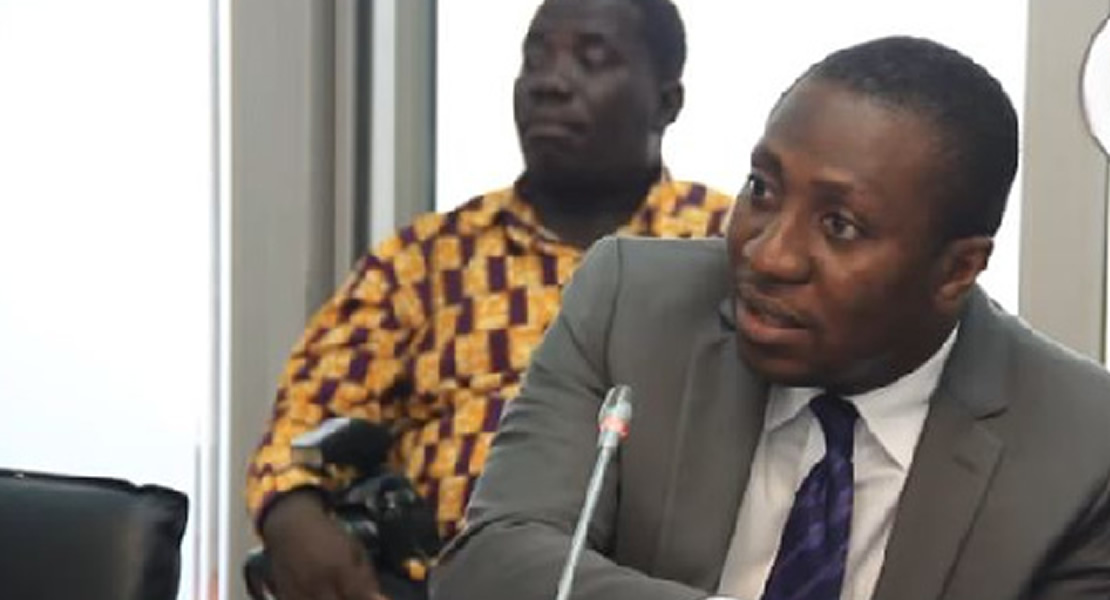
The Member of Parliament for Effutu in the Central Region, Mr Alexander Afenyo-Markin Thursday stirred controversy in Parliament with an application to be allowed to make a submission in the local Fante language.
His argument was that, “the fact that a person was unable to communicate fluently with that florescent competence in English, does not mean that the person cannot make his point.”
Mr Afenyo-Markin who was reacting to a recent public attack on MPs, with regard to their ability to properly articulate their issues in English language on the floor of the House pleaded with the Speaker to be allowed to speak in Fante.
He explained he was making the request under Order 47 of the Standing Orders of Parliament.
Order 47 states: “Proceedings of Parliament shall ordinarily be conducted in the English language except that a member may exercise the option to address the house in either Akan or Nzema, Ga, Ewe, Hausa, Dagbani, Dagari or in any other local language provided facilities exist in the House for its interpretation.”
According to Mr Afenyo-Markin, he has not been told that there are no such facilities in existence because they have had that Standing Orders since 1992.
The First Deputy Speaker of Parliament, Mr Ebo Barton-Odro who was presiding over the House interrupted and said those translation facilities were not available in the House and questioned why the Member wanted to overstretch the House.
But Mr Afenyo-Markin said not too long ago the public descended on Parliamentarians and raised a number of issues about MPs.
“Mr Speaker I believe strongly that the fact that a person is unable to communicate fluently, with that florescent competence in English, does not mean that the person cannot make his point, and that the person is unintelligent,” he repeated.
“So, Mr Speaker I believe the framers of this Standing Orders, were very clear in their minds that it would come a time that Members would want to freely make contributions in one Ghanaian language or the other.”
“And Mr Speaker if at this stage, after 20 years we still say that there are no facilities to allow members to make a contribution…”
The Member for Bawku, Mr Mahama Ayariga who doubles as Minister of Science, Technology and Innovation shot to his feet and said the Member was making an attempt to divert attention from the issue before the House – debate on Right to Information Bill.
He said the framers in their wisdom envisaged a situation where, “a Hausa man, an Ewe man, Ga man or a Fante man who has not have the benefit of formal education, and can’t speak English could still be elected by a constituency to be in this House. That person should have a right to participate in the debate in this House. But when you have had the privilege of going to law school, written all your exams in English, practiced law in English, and very fluent in flawless English, you cannot stand in this House, Mr Speaker and seek to make proceedings more expensive by demanding that infrastructure should be created for debate to take place in different languages.”
Mr Ayariga therefore prayed the Speaker to deny the application and described it as “frivolous” meant to divert attention from real issues.
The Speaker said he did not want the matter to be dragged since the practice had been that if a Member used any language apart from English in the course of submissions, the Member would translate it into English.
“If he is in the position to do that, I don’t think I can stop him, but if he is not, let us go the English way and save ourselves the trouble.”
Mr Afenyo-Markin thanked the Speaker for “partially” granting the application and said he would at a later date exercise that right of making his submission in Fante and translate it.
He said time was far spent and so was deferring that right for “today” and exercise it another time.
If he does that, he would probably become the first Member in the Ghanaian Parliament to make a submission in a local language on the floor.
Some members in the past have spoken local languages on the floor but nobody has made submissions in local language before.